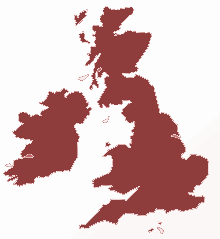 Customer ?
Customer ?
25%
Become a member and save
on your bills
Get a free account now
 Areas Covered
Areas Covered

- England
- Wales
- Ireland
- North Ireland
- Scotland
About Wasps
Useful Information About Wasps
In general, stinging insects like wasps frighten particularly everyone. Even though bees and wasps rarely sting, most people will feel threatened in their presence. Getting stung by a wasp can be a painful experience and for some who are allergic to the sting it can be fatal.
Quick facts about Wasps
- - Wasps are the least loved stinging insect in the world.
- - Wasps do not provide such beneficial activities like their bee counterparts who make honey.
- - Unlike bees who eat and develop on a diet of nectar of pollen, most wasps will tend to eat by feeding off other insects.
- - Most of the stings from Wasps come from the Yellow Jacket wasp breeds.
- - There are some 100,000 different species of wasp
- - A wasp nest can grow to the size of large beer barrel and sometimes even larger. (A nest of this magnitude can contain several thousand wasps all hot tempered, stinging insects.)
What do Wasps look like?
Wasps that you would most commonly see in the garden or around your home are worker wasps. These wasps have an average length of 1-2cm's. These wasps will have a distinctive black and yellow striped body and will look shiny in appearance.
The Wasp Life cycle
Wasps have a life cycle which has four distinctive stages:
- - Egg
- - Larva
- - Pupa
- - Adult
In the spring time, the queen wasp will emerge from her state of hibernation and will begin the process of building a nest. The location of this nest will depend upon the type of wasp, nests may be built almost anywhere.
The queen will begin the process of making the nest by chewing up pieces of wood and mixing it with its saliva to produce a paper like material. The queen will begin making the first parts of the nest and then she will lay her eggs inside the nest. The queen will then feed her eggs till they hatch out as adults. Once the first worker wasps have hatched out, they take over the task of expanding the nest.
By the end of the summer period a wasp nest can range in size from the size of a football to several feet wide. On average a wasp nest will contain between 3000 – 5000 wasps.
During the late summer months, males wasps and new queen wasps will leave the nest to mate. Fertilised queens will fly off to look for a suitable place to hibernate for the winter.
In the Autumn months as the weather gets colder, the nest starts to degenerate and all the worker wasps will die out.
What do wasps eat?
Worker wasps will generally feed on nectar and fruit. Worker wasps will also be seen catching insects which they will feed to the young wasps inside the nest.
Why are Wasps a health risk and why do they sting?
As wasps will feed from dustbins, visit waste sites and feed off dead animal they are capable of spreading several diseases. In general, wasps are mainly thought of as nuisance rather that a serious health risk. Although there was reported 4 fatalities in the UK last year from wasp stings.
The sting of a wasp is used for killing small insects for food. As a general rule, wasps will only sting you if they feel disturbed or threatened.
By the end of the summer many wasps will begin feeding on fermenting fruit which will make them more irritable, and therefore more likely to sting people. The sting of a wasp can affect people in different ways, some people are hardly affected at all while others may need hospital treatment from the verminous sting.
Overall, wasps are particularly seasonal in nature. As a pest, wasps will be most actively bothering people towards the later part of Summer and in the Autumn months. While their sting is rarely fatal, their presence can be a source of great nuisance to many.
All you need to do is contact 365 Pest Control Services and leave the rest in the experienced hands of 365 Pest Control group.


 Share
Share

